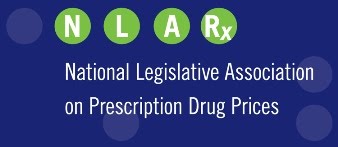|
Pay-to-Delay will Get Day
in Court While Generic Manufacturers Shielded
The Supreme Court has a mixed
record when it comes to pharmaceutical policy, and this year's opinions
continue the trend. On the one had, the Court has ruled in favor of
consumers in FTC v.
Actavis. For years, NLARx and its legislative members have been
weighing in opposing pay-to-delay schemes. We have signed amicus briefs, written letters, and passed
resolutions. Finally, a Supreme Court decision will allow the
Federal Trade Commission to challenge these deals in court on a case-be-case
basis. While we would have preferred a flat-out decision that these deals
aren't legal as against the pubic interest, the decision is a step in the
right direction. Consumers, state governments and other purchasers or payors
are expected to save. Read
more here. Meanwhile in Europe,
drugmakers are fined for
these anti-competitive deals.
Note that these pay-to-delay
deals are only one strategy drug manufacturers use to keep brand name drugs
at the top of preferred drug lists and generics out of the hands of
consumers. Other strategies contributing to the high cost of medicine include
"evergreening" - patent extensions for minor changes in drug
formulas; read more here.
While the Supreme Court's Actavis decision may
benefit consumers seeking to purchase less expensive generic drugs,
apparently its "buyer beware" when it comes to safety. Of
particular concern to state legislators is the Supreme Court's
decision in Mutual
Pharmaceutical Co. v. Bartlett that FDA approval of a
generic prescription drug preempts a state-law damages claim premised on the
drug's design defect. Read more in Public Citizen's Consumer Law & Policy Blog and
in Forbes.
|
More

